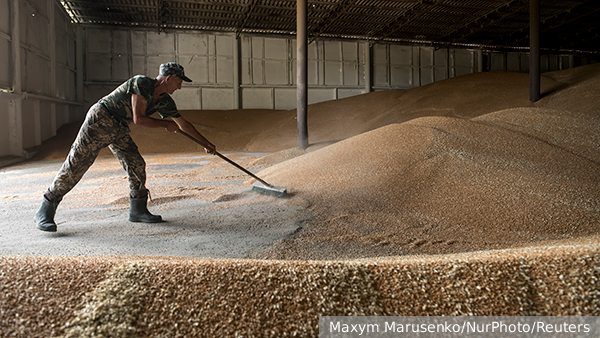
BRICS Plus to set up its own dollar free grains trading platform?
The expanded BRICS, the association of major developing economies, could become a platform for a self-sufficient dollar-free grain market, economists say.
BRICS – which is an acronym for Brazil, Russia, India, China, and South Africa – added net grain importers Egypt, Ethiopia, Iran, Saudi Arabia, and the United Arab Emirates (UAE) in 2024, almost equalizing the production and consumption of key grain crops within the group.
Under these circumstances, the association may create its own trading platform and trade grain within the group without using the US dollar, according to a letter from the Russian Union of Grain Exporters (Rusgrain Union) to the Ministry of Agriculture, reviewed by Russian business newspaper Vedomosti.
According to the Rusgrain Union estimates, the five BRICS countries at the end of 2023 produced a total of 1.17 billion tons of grain per year (42% of world production) and consumed 1.1 billion tons (40% of world consumption). After the expansion, the group's grain production will mount to 1.23 billion tons per year (44% of the world), and consumption will come close to production, i.e. 1.22 billion tons (also 44%).
"Statistically, it is true that 25% of the wheat trade is Russian wheat," Vladimir Petrichenko, CEO of the analytical company ProZerno, told Sputnik. "Likewise, more than 25% of the corn trade is Brazilian corn. Moreover, if we talk about soybeans, then about 58% of world trade is Brazilian soybeans. At the same time, China is the largest buyer of corn and wheat, Egypt is the largest buyer of wheat, although to a lesser extent; but they buy wheat in the same way as China there, 12 million tons per year. Now Saudi Arabia has been added, the main buyer of barley. But still, the key commodities are wheat, corn and soybeans. And for all of them, especially considering those who joined in January, this is a huge market."
BRICS countries represent a huge part, and in some cases more than half of the market for these agricultural goods, the expert pointed out. "In short, this fruit is ripe to be picked up," Petrichenko stressed.
In his letter to the ministry, Eduard Zernin, Chairman of Rusgrain Union, argued that these developments create the preconditions for the formation of a BRICS grain exchange. He believes that Russia could play the role of a supplier of last resort, to which other net exporters may later join.
"We have strict requirements for developing our own trading platform with settlements in any of the currencies of the BRICS countries, and in the future, a special clearing currency in Russia or another country with a strong financial system and a freely convertible currency other than the dollar," argued Zernin.
The establishment of an exchange is not solely a government matter. Commercial operators play a significant role in its creation. Therefore, it is essential to have collaboration between state and non-state operators. For instance, the Chinese Dalian exchange has a substantial turnover, but its impact on market pricing is insignificant. The expert expressed optimism about the prospects of this endeavour.
The expert highlighted the need for the group to select an appropriate clearing currency after abandoning the US dollar.
Additionally, Petrichenko emphasized the importance of determining the clearing center's location and the currency used for settlements.
Will West Disrupt BRICS' Progress?
According to Petrichenko, countries that Russia has designated as 'unfriendly' due to the sanctions imposed over Moscow's military operation in Ukraine will strongly resist this process. Western countries and their allies have attempted to cripple Russia's energy and grain trade to damage its economy. However, this tactic has not been successful.
"Russia has already displaced the US and EU considerably in the wheat market," noted the expert. "Brazil has greatly surpassed the US in the corn market. Currently, Brazil exports more corn than the United States. In the soybean market, Brazil has long held the number one position. Therefore, unfriendly outgoing exporters are likely to resist and sabotage the process of market redistribution."
The expert expects that this process will not be easy. According to Petrichenko, the global share of both the US and the EU is expected to decrease significantly in the future.
Currently, it may seem difficult to imagine that the main players in these markets are transnational companies headquartered in the US and the EU. They are viewed as an 'unfriendly contingent' for BRICS and particularly Russia, as the expert concluded.
